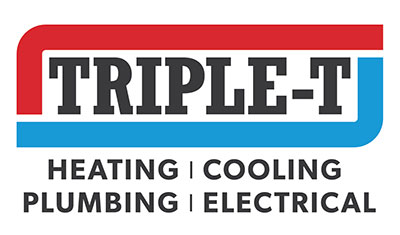10 HVAC Preventative Maintenance Tips for Fall and Winter
Fall is here, and that means winter is right around the corner. This is the ideal time of year to conduct routine HVAC maintenance and get your furnace ready for another heating season. Here are 10 easy steps you can take to avoid furnace breakdowns and ensure heating safety this winter.
Replace the Air Filter
The primary purpose of an HVAC air filter is to trap large particles that could land on and damage sensitive heating and cooling equipment. If you have a high-efficiency filter, it also improves indoor air quality by removing microscopic pollutants from the air.
Over time, dust, dirt, hair, textile fibers, and other airborne debris get caught in the filter. While this is what you want, an overly clogged filter can restrict airflow, overworking your furnace and raising your heating bills. To prevent this, remember to replace the filter every one to three months.
Set Your Thermostat for Energy Savings
As winter approaches, it’s time to switch from cooling to heating mode. When you do, you may also want to adjust how you set your thermostat to match your wintertime preferences and improve energy savings. Here are some key points to remember:
- Set the at-home temperature no higher than 70 degrees. Dress for winter weather to help you stay comfortable.
- Set the temperature between 60 and 62 degrees while you’re away all day or sleeping at night. With a programmable thermostat, you can set it and forget it.
- Avoid overriding your preprogrammed settings as much as possible. If you’re cold, put on another layer or cozy up under a blanket before you touch the thermostat.
- If you must adjust the temperature, do so by just a degree or two. Cranking up the temperature to 80 degrees won’t heat your home any faster and stands to waste energy when the temperature exceeds your comfort level.
Check & Clean the Air Vents
Examine the air registers in every room. Are the grilles dusty? If so, vacuum them with the brush attachment to improve airflow. Then, check if any return and supply vents are hiding behind furniture, rugs, or curtains. Remove these obstructions so air can flow properly.
It’s tempting to close the vents in unused rooms, thinking you’ll save money in the process. However, this can throw off the airflow balance, increasing wear and tear and raising your energy bills. This is why it’s important to keep at least 80% of your registers open at all times.
Seal the Ductwork
Leaky air ducts can be incredibly wasteful because they leak heated air into unconditioned spaces behind the walls and above the ceilings. However, despite its name, you should never resort to using duct tape to seal ductwork. For the best results, hire an HVAC contractor for professional ductwork sealing. This investment will reduce your heating costs, make your home more comfortable, and improve indoor air quality.
Prevent Home Heating Fires
Heating equipment causes over 48,000 home fires each year. To keep your family safe this winter, follow these tips:
- Keep combustible items at least three feet away from heat sources, including space heaters, fireplaces, furnaces, and water heaters.
- Never leave space heaters running unattended.
- Don’t plug space heaters into extension cords.
- Turn off the furnace and call an HVAC contractor if you notice any strange odors or noises.
Check the Furnace Flue
A blocked flue could result in backdrafting, a dangerous situation that increases your exposure to carbon monoxide gas. Before running your furnace for the first time this fall, go outside and check that nothing is blocking the exhaust vent. If the flue is clogged on the inside, an HVAC contractor can clean it for you.
Avoid Using the Utility Room as a Storage Area
Your furnace needs room to “breathe,” which means you should not store anything within 10 to 15 feet of the unit. If your utility closet is smaller than this, it should remain empty apart from your HVAC equipment. It’s particularly important to keep anything flammable away, including cans of paint and paint thinner, cleaning supplies, beauty products, and aerosol sprays.
Test Your Smoke Alarms & CO Detectors
These safety devices help alert your family to the presence of a fire or carbon monoxide leak. To make sure they’re working properly, test your alarms and detectors once a month. Change the batteries once a year as well. Whatever you do, don’t remove the batteries from a chirping smoke alarm or CO detector without replacing them!
Schedule Professional HVAC Maintenance
While you can complete many fall HVAC maintenance steps yourself, only an experienced technician can provide a thorough inspection, cleaning, and tune-up. Industry professionals recommend scheduling professional air conditioning maintenance every spring and furnace maintenance every fall.
The purpose of annual HVAC maintenance is to keep the system running smoothly and catch small problems early so they don’t lead to bigger problems later on. If you keep up with the recommended schedule, you can expect lower heating bills, fewer emergency repairs, and a more comfortable home.
Consider Replacing Your HVAC System
Was your furnace installed more than 10 years ago? If so, it may only be 60% efficient, with the end of its lifespan drawing nearer every year. You could wait for a total system failure and deal with an emergency replacement—or you could enjoy lower heating bills, better reliability, and renewed warranty coverage by replacing your furnace this year. High-efficiency models are up to 97% efficient, so you’ll notice the upgrade immediately on your next utility bill.
Contact Triple T Heating, Cooling & Plumbing
Whether it’s time to schedule winter HVAC maintenance or you want to upgrade your furnace just in time for snowy weather, Triple T can get the job done. We have been maintaining, repairing, and replacing HVAC systems since 1974. Contact us today to schedule the services you need. Call 801-798-7711 if you live in Utah County or 435-275-4011 if you’re a Washington County resident.


